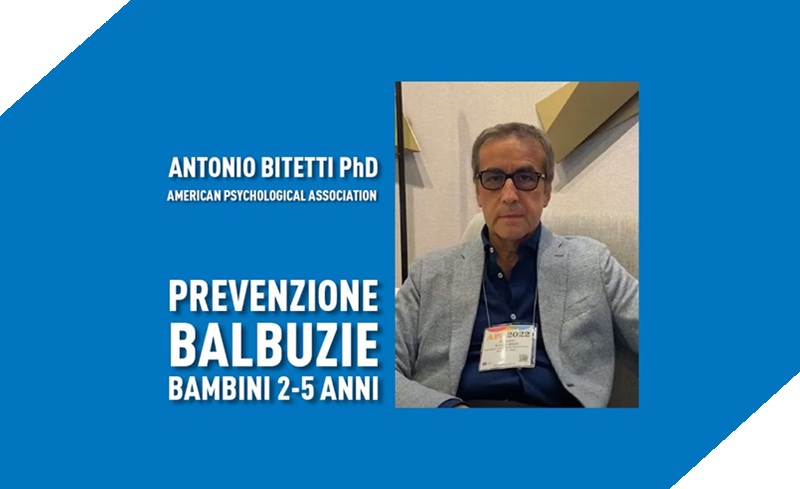Author: Dr. Antonio Bitetti, psychologist-psychotherapist. Founder of the European Institute for Stuttering.
Taken from: Report on: “Stuttering Integrated Approach”, published in 1997, in “PSYCHE nuova”, review of humanistic-existential psychotherapy, autogenic psychotherapy and brief psychotherapies. Official organ of the C.I.S.S.P.A.T of Padua- Italy.
Tags: stuttering, personality, research, insights, Bitetti, integrated approach, stutterer.
The stutterer constantly experiences the problem of saying, not saying, there is not that spontaneity typical of the normally speaking person.
Analyzing the problem from a phonetic point of view, we realize that he finds it difficult especially in the emission of consonants, and is greatly facilitated by vowels. He finds it difficult when he has to verbalize thoughts with a high emotional content, or that he has considered as such, this suggests the presence of complex psychological mechanisms, which have fueled the scientific literature on the etiopathogenesis of this disorder.
In general case studies, it is found that almost all stutterers stutter in the presence of strangers, or those considered authoritative, emblematic, the example of the child who fears questioning by the teacher. On a relational level, the stutterer feels a prisoner of his disorder and experiences social relationships with difficulty and suffering.
For example, he fears verbal exposure in any group relationship, feels discomfort and embarrassment if he is asked to repeat a topic already exposed and his difficult moment is experienced on the phone, which becomes a painful experience and even a real block. This does not mean that all stutterers have social limitations, it depends on the severity and importance that the stutterer gives to his disorder.
In fact, a fundamental element is given by the negative perception of oneself and the negative judgment by others, which can increase the level of anxiety, and thus affect normal social relationships. This brief exposition of the difficulties that the adult stutterer experiences, leads us to reflect on the psychic dynamism underlying the disorder.
In my vast clinical case history, with more than four thousand cases treated in 25 years of professional activity in Italy, I would like to highlight important contributions of analysis and comparison on this problem.
Usually, as a child, the adult stutterer has already undergone cycles of speech therapy and courses on stuttering based mainly on phonation or similar techniques, accompanied by breathing exercises and so on. However, few have addressed the underlying aspects of stuttering and find themselves in adulthood with an unchanged or slightly improved situation, at least in terms of language.
Starting from psychoanalytic concepts, stuttering is seen as a symptom of a neurosis with fixation to the sadistic-anal phase. According to Fenichel O., there are traits of strong aggressive valence. The word is life, while mutism is symbolically death and therefore, the alternating speaking, typical of stuttering, can represent the fear of saying things with an aggressive meaning.
Behind the zeal of wanting to speak well and to show one’s value is hidden a hostile and sadistic tendency. Stuttering can be seen as a block, and a punishment of this. It is also possible to hypothesize a transfer to the oral level of complex sadistic-anal dynamics. There is a basic ambivalence: on the one hand a wanting to say that can mean action, dynamism and therefore growth. On the other; block, hesitation, which can make one think of the fear of exposing oneself and therefore, passivity.
In this, we can glimpse the restorative and creative aspects of the stutterer’s psyche.
For a long time, this problem was even joked about, and in very distant times, there was a tendency to associate speech difficulty with intellectual disability. The fluency of language is hindered, but not intelligence and the ability to complete one’s own plans. On a cognitive level, however, the stutterer is constantly influenced by a type of thought, where the fundamental element is the control of the word.
The fear of stuttering leads to constant attention on how to say it, on the control in terms of predicting the judgment of others, and finally, on the most realistic and logical one, which is what one wants to say. With such a sequence of thoughts, excessive to say the least, it is easy to fall into a state of anxiety, compromising the speech itself.
The normal speaking person does not control the word, it is fluid, he is more attentive to what he says, than to how.
This psychic dynamism is certainly affected by counterproductive educational aspects. It is essential to underline in this regard that the obstinacy to correct the disorder, with reprimands from parents or teachers in children or stuttering boys is highly detrimental, and exacerbates the already high level of anxiety.



